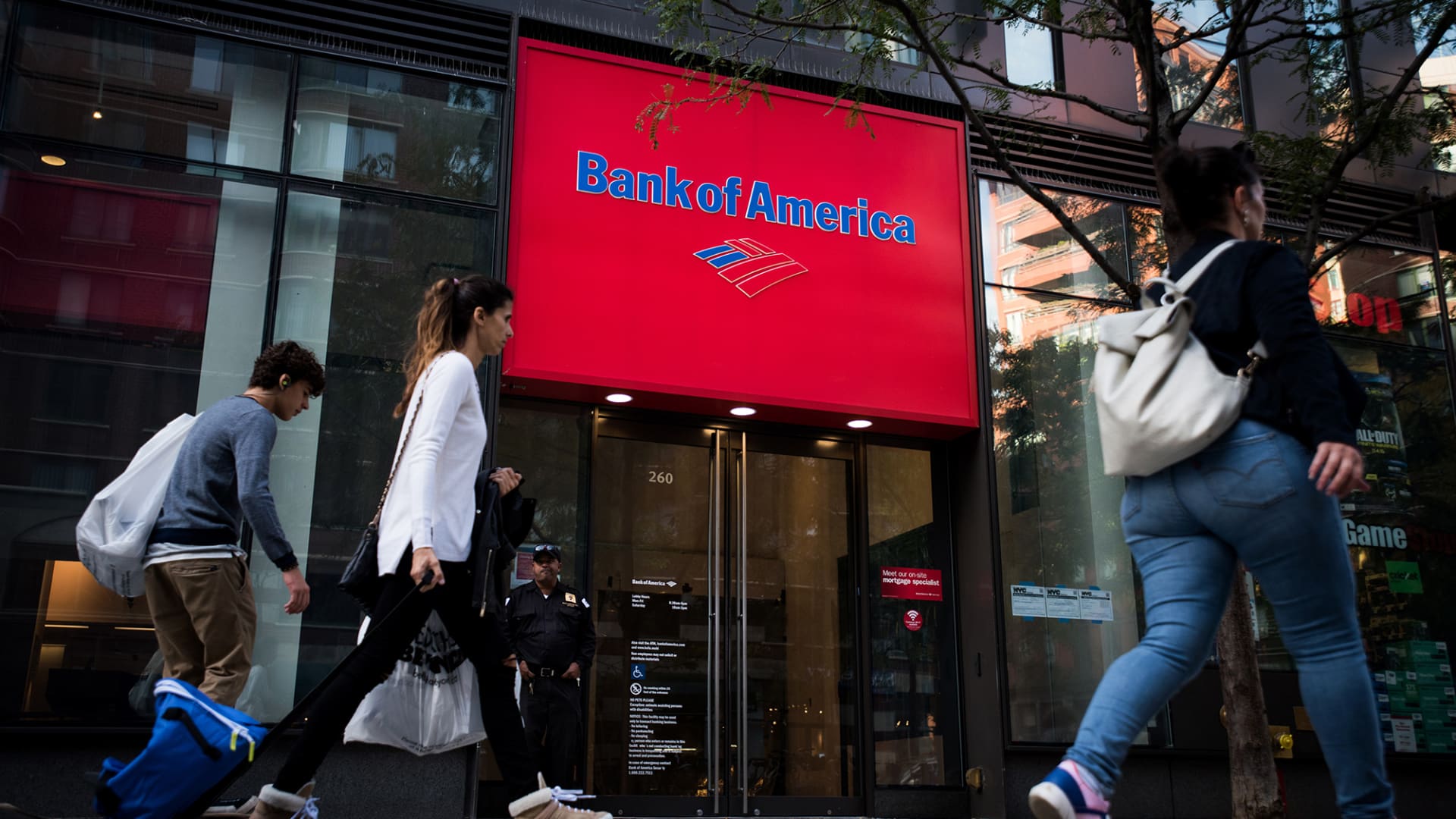Products You May Like
The 2008 financial crisis had a devastating impact on Bank of America. Shares of the bank were trading for as low as $2.53 in 2009 and net income dropped from a high of $21 billion in 2006, to just $4 billion in 2008.
“Bank of America was one reason why much of the investing public and consumers and government lost faith and trust in banking,” recalled Mike Mayo, a bank analyst at Wells Fargo. “If the government did not intervene for Bank of America and the other banks, Bank of America would have failed.”
Fast forward to today, BofA is thriving despite concerns over inflation and threats of a possible recession. The bank reported net income of $31.9 billion in 2021, compared with just $4 billion in 2008.
“As the rates have gone up and if the recession is shallow, then we’re going to see widening spreads and the ability of Bank of America to have significant earnings from net interest income,” said Kenneth Leon, a research director from CFRA Research. “This is unique to the banking industry and Bank of America being one of the largest banks, stands to benefit the most.”
The hard-learned lessons from the financial crisis have also led BofA to undergo significant changes, allowing it to earn its position as the bank with the second-largest total assets in the United States. JPMorgan is still comfortably ahead as the largest bank in the U.S. based on total assets.
“The big change at Bank of America is that they have gone from irresponsible growth to responsible growth,” said Mayo.
A more conservative lending standard is just one example of the bank’s aim for sustainable growth.
“One key aspect of Bank of America’s responsible growth is to say no and no more often,” explained Mayo. “So that when they say yes, it results in a lot more growth that’s sustainable, responsible and better for reputation.”
BofA was unable to participate in CNBC’s coverage of this story.
Watch the video to learn more about how Bank of America was able to achieve one of the biggest comebacks in banking history.
